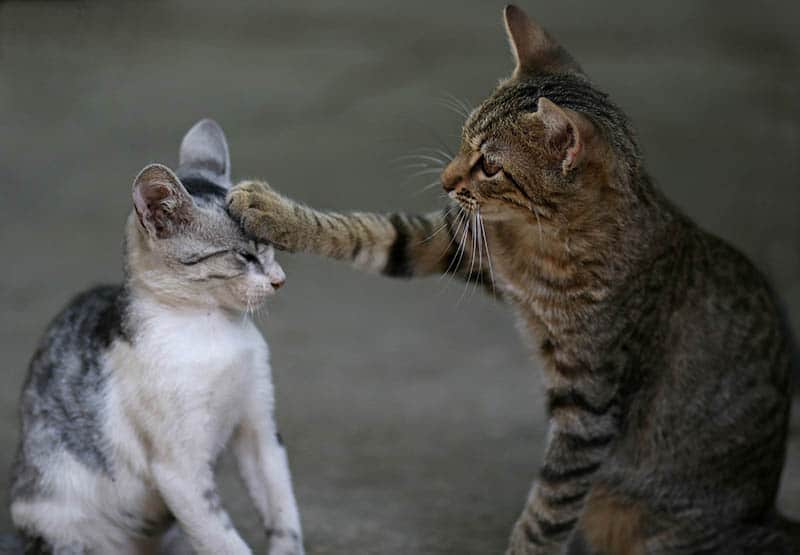Most mammals, including cats, have learned to communicate nonverbally. Cats have learned several forms of inter-cat communication over the millennia; some are vocal, some are physical, and others are chemical. Cats do it well in whatever form of communication they use and have developed a complex “language” all their own. If you’re curious about how cats communicate, read on.
Physical Forms of Communication
One of the main methods of communication cats use is the physical movement of different parts of their body. For example, how they walk and stand gives away many clues to other cats about how they feel. The most common physical communication cues cats give include the following:
1. Moving Their Tails
A cat’s tail is one of the body parts they use the most to communicate. For example, if a cat likes another cat, the very tip of its tail will usually point forward. If your cat’s tail is moving fast, it typically means they’re anxious or fearful. If their tail is held high over their head and curled forward, your cat is very happy to see another, but a tail pointing straight up means they’re about to spray and leave their mark.
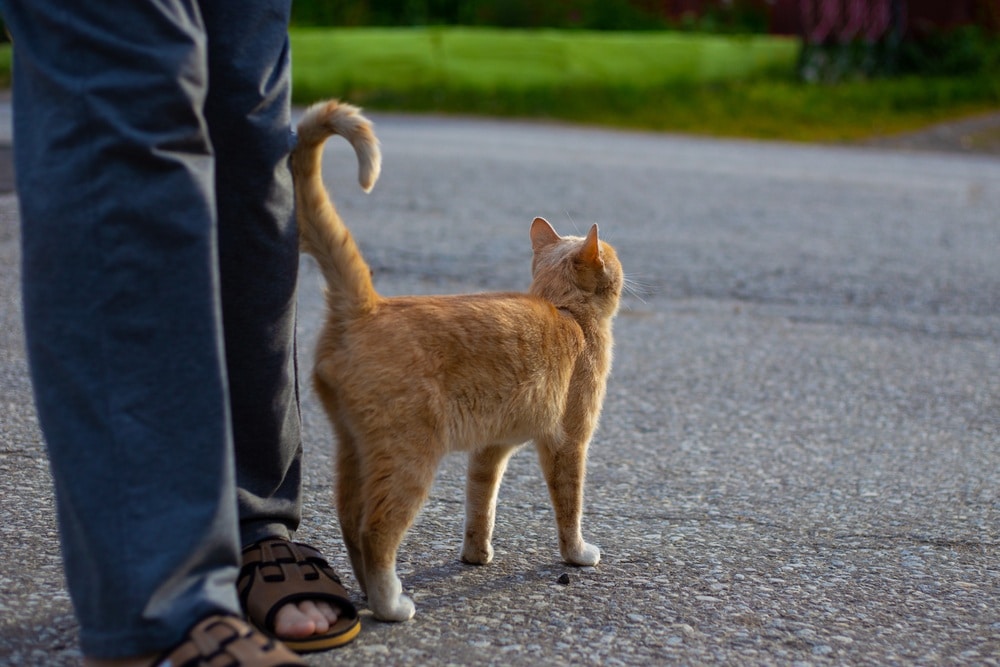
2. Rolling Over to Show Their Bellies
A cat that is very comfortable and friendly with another cat will often roll over and expose its vulnerable belly, something it would never do if it didn’t feel 100% secure.
3. Blinking Their Eyes
Cats will often blink their eyes rapidly while looking at another cat. This is a sign that they are willing to be approached and would love extra attention from another cat.
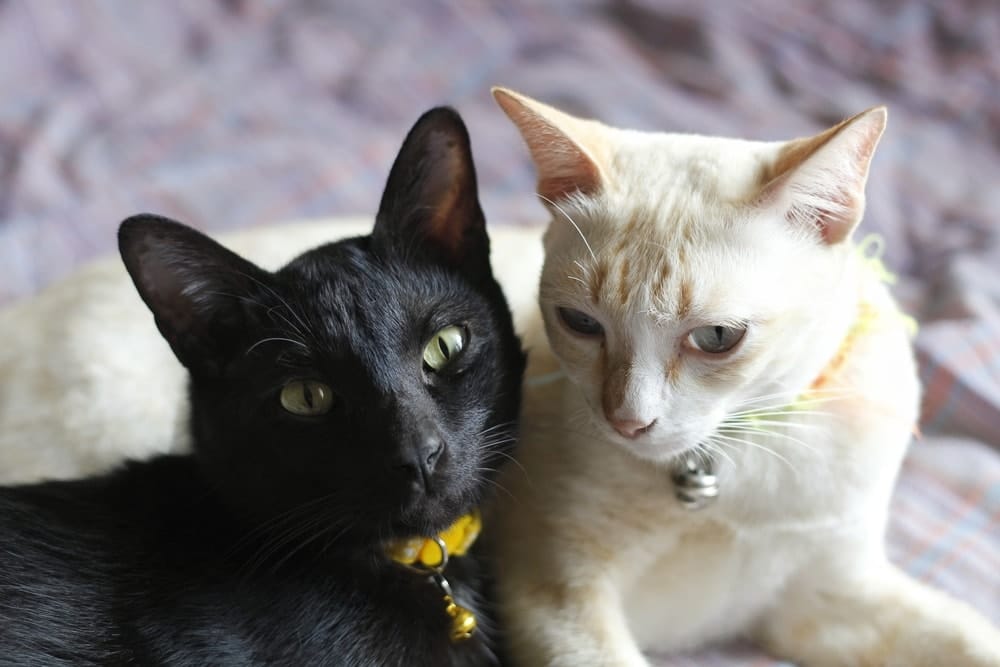
4. Crouching Down and Tucking Their Tails
If you see your cat crouching down and tucking its tail, it feels threatened, anxious, or unsure of itself. If it also has its ears pulled down close to the side of its head, it is not a happy cat.
5. Licking Their Lips
It seems odd, but surprisingly, when a cat licks its lips in the presence of another cat, it feels threatened or fears the other cat.
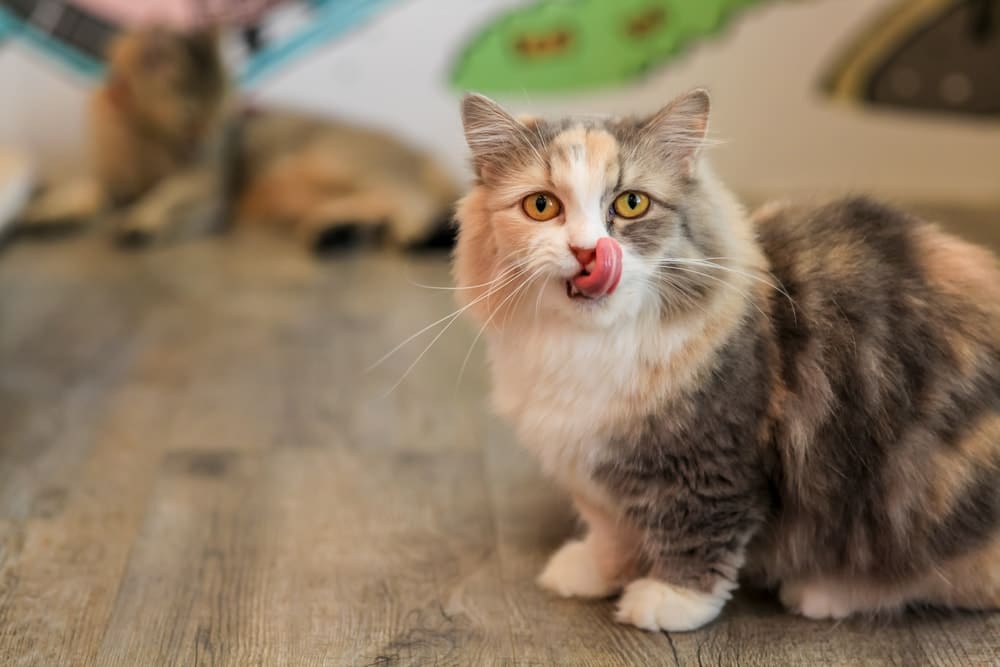
6. Rubbing Their Heads on Another Cat
If you see a cat rubbing its head on another cat’s head or part of its body, you can rest assured that both cats like each other very much and feel comfortable. This physical form of communication is like when two old friends meet and shake hands.
Vocal Communication
Another form of communication cats use is vocal. Cats vocalize a lot of their feelings and thoughts, and it’s often an easier way to know that something isn’t right. Vocal cat communication cues include the following:
7. Hissing and Growling
It’s not difficult to know how your cat is feeling if, for whatever reason, they’re hissing and growling loudly. Both are usually signs that your cat is very upset, angry, and even ready to attack. Growling usually comes first as a warning, then hissing, followed by sharp, slashing claws.
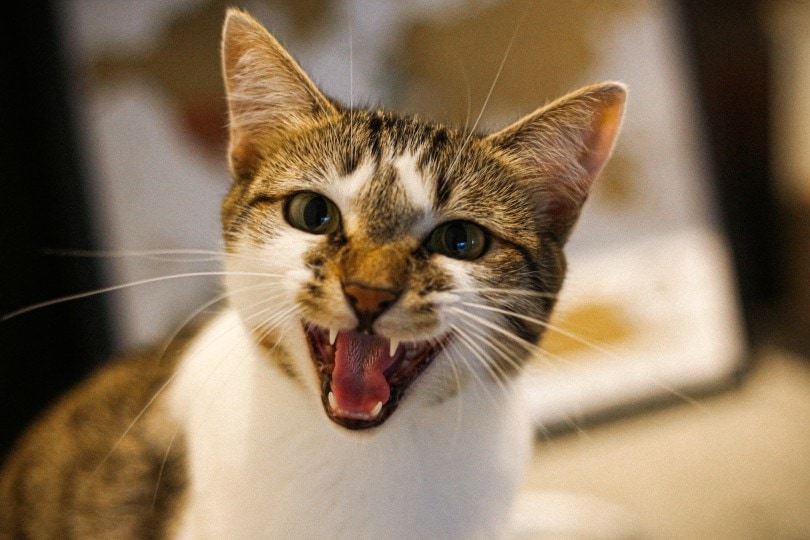
8. Purring
Cats purr around humans but also as a form of communication with other cats. Usually, a purring cat is a happy and content cat, so if yours are purring while interacting, it’s probably a good sign. However, if your cat is purring more than usual and for no apparent reason, it might be that they’re trying to communicate that they aren’t feeling well.
9. Meowing
Here’s a truly surprising fact about cats and communication; they only use meowing to communicate with humans, not with other cats. However, even if they don’t meow, cats will often trill, snarl, hiss, or growl to let other cats know how they’re feeling.
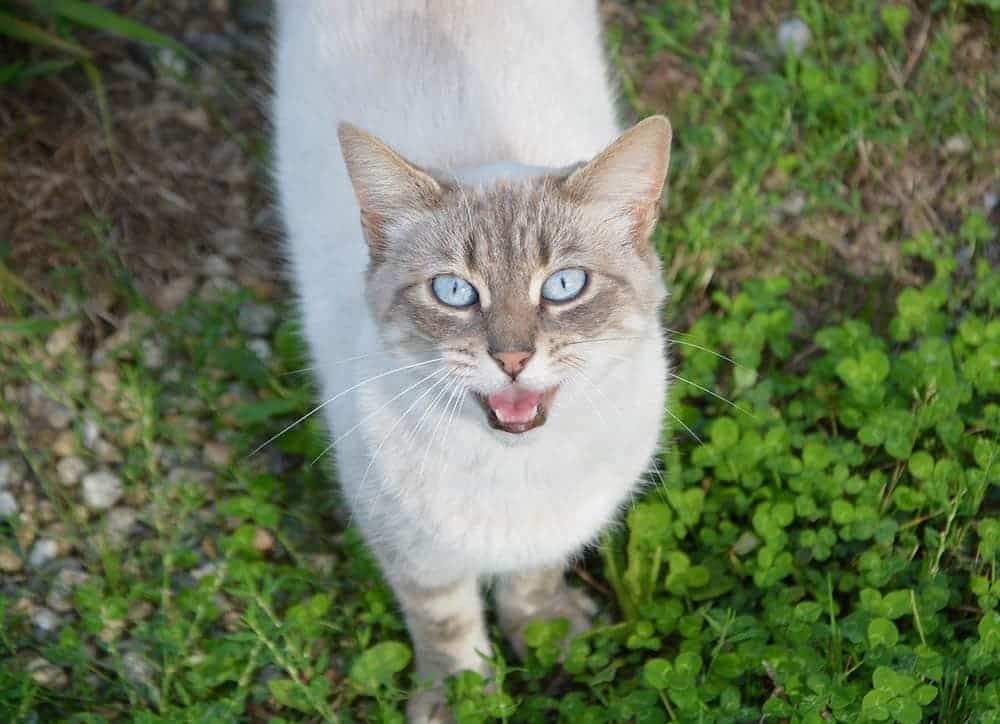
Using Pheromones
Cats leave their scent on things in and around the home and mark their territory with urine to let other cats know it’s theirs. However, cats leave a lot more scents around the places they live. When they do, whether by rubbing their cheeks, chins, body, or tail, they leave hormones called pheromones behind them to tell other cats their entire story. The story left behind tells the cat whether there was male or female, their age, and if they are in “heat,” among other things.
Do Cats Communicate With People as They Do With Other Cats?
As mentioned earlier, cats don’t meow nearly as much with other cats as they do with humans. Over the years, cats have learned that humans respond best to meowing, so they use this form of communication with us the most. Yes, cats will sometimes meow to communicate with other cats, but mostly, it’s what they do to get the attention of their favorite human. In other words, cats communicate with humans differently than they do with other cats.
Can Cats Communicate With Dogs?
If you have cats and dogs, you might wonder if they can communicate with each other the way cats communicate with cats and humans. The fact is that there’s no real form of communication between the species, but after a dog and cat have lived together for a long enough amount of time, they will begin to understand each other and form their own method of communication.
For example, you can always tell a young, inexperienced dog from one that’s been around cats. The former will rush in and usually frighten the cat. The latter will approach a cat (or cats) with more caution, knowing from experience that they don’t like to be messed with and will fight back if necessary.

Final Thoughts
Cats communicate with each other in several ways. Surprisingly, they don’t use meowing often, although kittens will meow to let their mommy cat know they’re hungry. Most cat intercommunication involves hissing, growling, spraying, and physical touch, plus a wide range of physical movements and positions. While they may not communicate on the same level as us, you can rest assured that cats still communicate well with each other and with other animals.
Featured Image Credit: AdinaVoicu, Pixabay
Contents
- Physical Forms of Communication
- 1. Moving Their Tails
- 2. Rolling Over to Show Their Bellies
- 3. Blinking Their Eyes
- 4. Crouching Down and Tucking Their Tails
- 5. Licking Their Lips
- 6. Rubbing Their Heads on Another Cat
- Vocal Communication
- Using Pheromones
- Do Cats Communicate With People as They Do With Other Cats?
- Can Cats Communicate With Dogs?
- Final Thoughts

